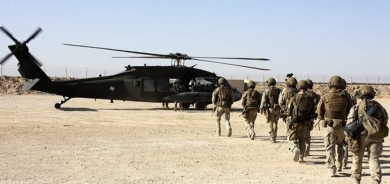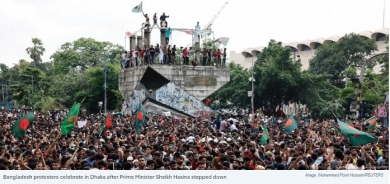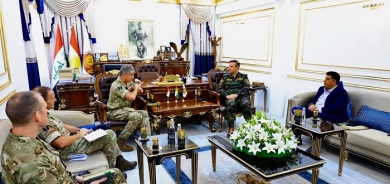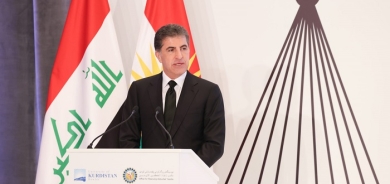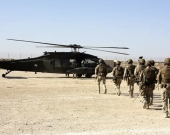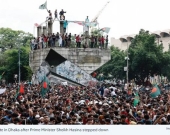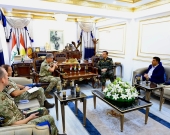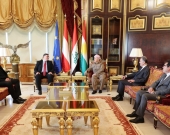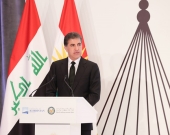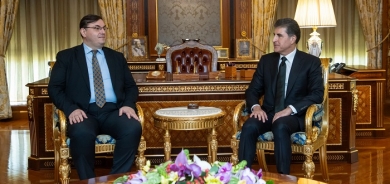As he talks of strategy’s success, Obama finds Kurds key player

ARLINGTON, Vigrinia - Speaking near the site of the largest cemetery for US soldiers, US President Barack Obama gave a 20-minute speech on Monday highlighting the successes of what he called a “comprehensive strategy” against the Islamic State, or ISIS.
As he tried to elaborate on the losses ISIS had suffered partly because of the US-led coalition airstrikes, he found himself constrained to a certain geographic area with a common element: the northern regions of Iraq and Syria where the Kurds are mostly in control.
Out of the seven examples of battlefield gains Obama refereed to in his speech, six of them were achieved with the help of the Kurdish forces. The areas he mentioned were Mosul Dam, Mount Shingar, Kirkuk province, Kobani and Tal Abyad.
The other victory he pointed to was Tikrit, where Iran-allied Shiite militias helped Iraqi forces retake the town after weeks of fighting.
“Over the past year, we’ve seen that when we have an effective partner on the ground, [ISIS] can be pushed back,” said Obama in the presence of his administration’s top military leaders.
The Kurds, who are believed to be the world’s largest ethnic group without an independent homeland, number some 30 million people living mostly in adjacent parts of Iraq, Syria, Turkey and Iran.
Their effective and largely secular fighters have attracted Western attention and support over the past year as they have battled Islamic extremists. Women comprise a significant portion of the Kurdish forces fighting on the frontlines.
Despite their effective role, the US has been reluctant to be a full-fledged supporter of the Kurds. It has refused to send advanced weapons directly to Iraqi Kurds, fearing such a move might damage its relations with the new Iraqi Prime Minister Haidar Al-Abadi.
Syrian Kurds have received much less support from the US and its coalition partners, mostly confined to airstrikes for the YPG, or People’s Protection Units.
The US reluctance to arm Syrian Kurds has much to do with Turkey, a NATO member that sees any independent Kurdish state as an “existential” threat to its territorial integrity. There are some 15 million Kurds living in Turkey.
On Monday, Secretary of Defense Ashton Carter described the Syrian Kurdish forces as “capable,” suggesting they might receive more US assistance in the future.
“We are doing more in Syria from the air. I think you saw some of that in recent days. And the opportunity to do that effectively is provided in the case of the last few days by the effective action on the ground of Kurdish forces, which gives us the opportunity to support them tactically,” said Carter.
As US continues to work with the Kurds, Turkey seems increasingly anxious. This week, Turkish Prime Minister Ahmet Davutoğlu said a Kurdish state in northern Syrian would never be allowed.
Last month, Kurdish YPG fighters retook Tal Abyad, a strategic town that seems to have raised the profile of Syrian Kurds in Washington.
“[ISIS] has recently endured losses in northern Syria, including the key city of Tal Abyad denying [ISIS] a vital supply rote to Raqqa,”said Obama, referring to the Syrian city knonw as the de facto capital of the jihadists.
Rudaw


